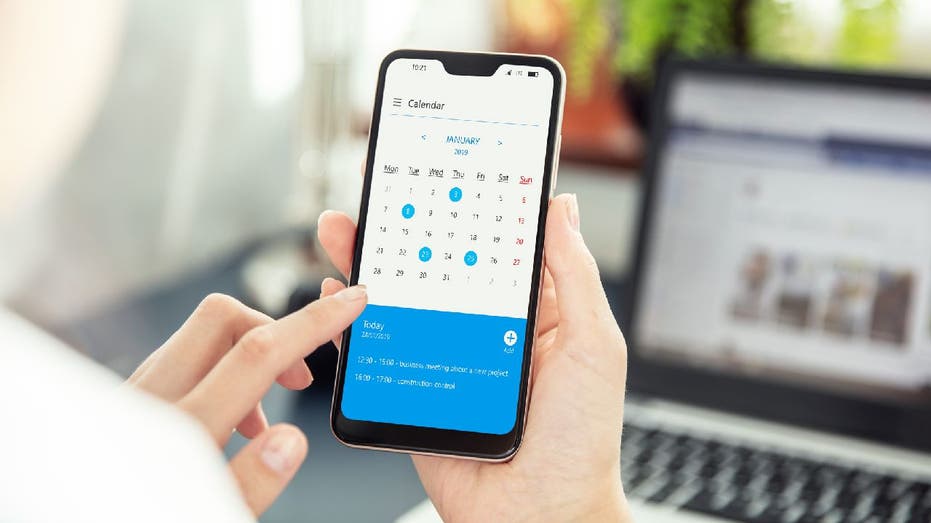Some remote workers are juggling two full-time jobs as the "overemployed" movement gains steam online, thanks to social media platforms like Reddit.
The r/Overemployed subreddit, which was begun in May 2021 and is the public-facing forum of Overemployed.com, has grown to 92,800 members.
At the start of 2022, the subreddit had roughly 6,389 members, according to Subreddit Stats, a website that tracks subreddit growth.
The choice to become overemployed largely stems from workers wanting to "earn extra income" and "reach financial freedom," according to Overemployed.com.

Some employees keep a second job as a secret from their employer. Many career experts advise against this. (iStock / iStock)
"My stress has actually gone down. Mental health is up, way up. I'm not stressed by layoffs or the thought that I can't make my next mortgage payment," Overemployed.com’s founder, Isaac, told FOX Business last year.
Isaac, who goes only by this surname (so that he doesn't jeopardize his job status at two companies), publishes guides, resources and success stories to help people navigate their overemployment.
The work strategy doesn’t always go smoothly, however.
Redditors turn to the r/Overemployed subreddit to discuss challenges, such as how to avoid company hiring announcements if they’re keeping their second job a secret, figuring out how to schedule emails while working on other projects and finding ways to avoid burnout.
If overemployment is something you may be considering, here are five things to think about before taking that leap.
1. Plan your work time wisely
"Taking on two remote jobs can be very lucrative, though fraught with peril when you don't plan well," Jeremy Babener, founder of Structured Consulting, a Portland-based business strategy firm, told FOX Business.
Remote workers should plan their availability meticulously with digital calendars and set expectations with each employer, Babener said.
"Think about your value from their perspectives," Babener said. "They want to count on you, and sometimes, ask you to go 'above and beyond.'"

Remote workers who are juggling multiple jobs may consider keeping track of their schedule with digital calendars. (iStock / iStock)
He continued, "The first time you're asked to work outside your set hours, whether you agree or not, make sure to say that you might not be able to do so next time. Often, they'll appreciate you sharing that you'd be interested to discuss a larger commitment — that doesn't mean you have to agree to their offer."
Setting these boundaries early on may help an employer recognize that they need to pay for a worker’s increased availability, Babener said.
2. Know that overemployment can bring down performance
Having two full-time jobs could hinder a worker's performance and reputation, according to Chuck Catania, principal consultant at Branding with Chuck, a NYC-based publicity firm.
"Much like quiet quitting, any time an employee is putting in less than full effort for their employer, they are in danger," Catania told FOX Business.
"Right now, we're in a tight labor market, but as the Fed's interest rate hikes put pressure on the labor market and drive up unemployment, the employment climate will change," he added.

Some remote jobs require online face-time with colleagues. (iStock / iStock)
High-performing workers who have disclosed their overemployed status and have no conflicts are an exception if they’re able to "give a full dose of effort to each employer," according to Catania.
"The real issue will be for those who have two full-time jobs, with two full-time paychecks, and split eight hours of work between the two companies," Catania said. "Employers know when their employees are giving maximum effort."
Catania continued, "When unemployment increases, which it will, employees won't want their professional brand to be one of an underachiever."
3. Weigh the risks to avoid termination
Mark Anthony Dyson, professional career coach and founder of The Voice of Job Seekers, a career consulting service in Chicago, said COVID-19 ushered in overemployment opportunities for remote tech workers.
"There was more time available in a workday, access to opportunities and privacy," Dyson told Fox News Digital.
He said he’s heard of workers taking on 9-to-5 and 5-to-1 shifts or working two jobs during the day to free up their evenings.
"Some workers were comfortable checking with their employer before taking on a second job, [while] others took risks," Dyson said.

Some remote workers are considering taking on second jobs as overemployment becomes a growing trend. (iStock / iStock)
While some employers impose anti-moonlight agreements that prohibit workers from taking on second jobs or working another position within their industry, workers who seek overemployment choose to prioritize their finances, including paying off student loans, mortgages an,d health care bills, according to Dyson.
"I asked one worker about their situation, who said there was no way the company could lawfully enforce the agreement," Dyson recalled.
In another instance, however, Dyson has seen an overemployed worker face discovery when his boss found out he had a second job with the same hours as the first.
"His boss found out about it through similar connections but did not pursue any disciplinary actions," Dyson said. "The lesson is LinkedIn has brought our professional networks closer than ever."

Remote workers might want to consider potential risks before they accept a second job offer. (iStock / iStock)
"People are no longer six degrees separated and possibly just one or two connections away," he continued.
"Your boss may be connected to the one you interviewed with at an ideal company. Don't underestimate how people are connected or if they're interacting or not."
4. Know that overemployment may be part of the new 'gig economy
Concerns over the U.S. economy and inflation usually drive people to secure job opportunities that work around their schedules and provide greater income, according to Mark Kaley, business consultant and public relations specialist at Otter Public Relations, a Florida-based PR firm.
"[Overemployment] really is no different from a person commuting from one job to another, except there is no need to leave the house for two remote positions," Kaley told FOX Business.
"It is no different from someone working as a department store sales associate and a coffee barista," he added.
Kaley said remote workers who choose to be overemployed are "just an extension of the gig economy" and they view two full-time remote jobs as two separate gigs.

Some remote workers can flawlessly juggle responsibilities at multiple companies, while others struggle. (iStock / iStock)
Some of these workers reportedly operate as a corporation while managing two subsidiaries or a sole proprietorship with two clients, which includes multitasking, completing assignments an,d performing necessary work, according to Kaley.
"It is simply a matter of perspective," Kaley said.
"On the other hand," he said, "there is an old proverb that you cannot serve two masters — and these individuals need to ensure they are not accepting remote work with conflicting interests and violating non-circumvents or non-competes employers may require to be signed for the acceptance of employment."
5. Know these precautions about overemployment from a lawyer
John-Paul S. Deol, partner and head of employment law at Dhillon Law Group Inc. — a national law firm with offices in California, New York, New Jersey, Florida, and Virginia — said he always advises would-be clients not to work two full-time jobs.
"Almost always, the person intended to hold the two jobs without letting the respective employers know," Deol told FOX Business. "Holding two full-time jobs, especially in the remote work environment, raises numerous hazards for both employers and employees."
He added, "It is nearly impossible for employees to handle two full-time jobs adequately and give each [of those jobs] their best work."

Taking on two full-time remote jobs can cause burnout and stress if duties become too much to handle. (iStock / iStock)
Risks that overemployed workers face include faster burnout, job neglect, and legal breaching of duties and contractual obligations, Deol said.
Deol noted that most employment agreements today have a clause that prohibits employees from working for another company.
This is usually done to thwart conflicts of interest and competition while also ensuring that employees dedicate their time to their jobs.
"Employers do not want their employees doing the same or similar work for their competitors," Deol said. "It can lead to claims of trade secret theft and questions of which employer owns the IP that is developed by the employee."
Deol continued, "Reasonable exceptions are often made for consulting projects or volunteering, but rarely, if ever, for more than that."
FOX Business’ Chase Williams and Lauren Simonetti contributed to this report.

